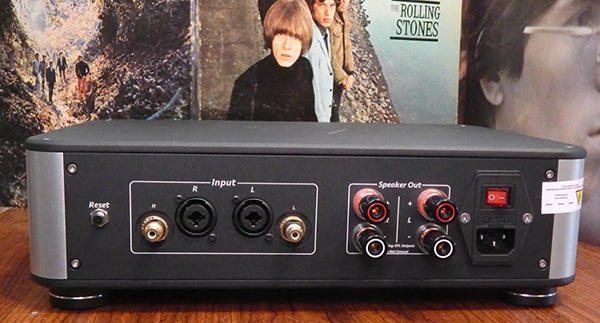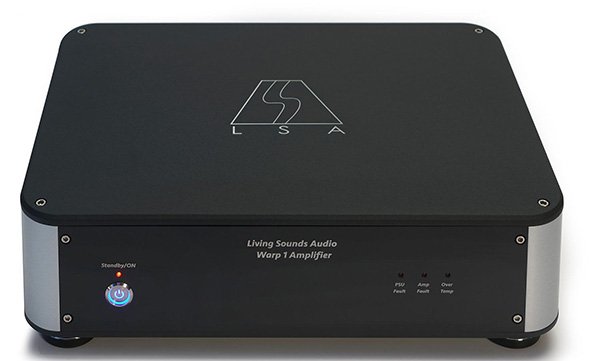And in the case of stable state amplifiersthe same old varietydoes anybody choose the state of the (germanium) artwork circa early Nineteen Sixties to fashionable silicon class-AB designs? I doubt it.
Now, many years into its personal growth, class-D amplification appears to have sea legs, even within the audiophile world. Fascinating reality: The category-D amplifier was invented and named within the Nineteen Fifties by the person who had already invented pulse-code modulation for sign transmission, Englishman Alec Reeves. The primary business class-D amp was a 2.5W equipment from Sinclair Radionics of England, launched in 1965 and adopted the following yr with a 20W second-generation mannequin. Sinclair was finally higher identified for pocket calculators.
The trendy class-D amplifier, constructed into an built-in circuit, debuted in 1996 with the Tripath “Class-T” chips. Since then, there was a gradual march ahead. Right now, most “civilian” amplifiers in issues like TV soundbars, “good audio system,” Bluetooth-connected moveable audio system, non-fancy car sound programs, flat-screen TVs, and the like are commodity-priced class-D “amplifier bricks.” They’re small, environment friendly, cool-running, and low-cost. Class-D amplifiers began to seem in audiophile-grade elements about 10 years in the past, though there have been earlier, outlier examples. Within the pro-audio world, they’ve been round a bit longer, typically however not at all times inside powered monitor audio system. Class-D amplification is ubiquitous within the fashionable sound-reinforcement world, that’s, for live-concert sound.
I’ve noticed this evolution, and actually have used a cheapo Tripath-based amplifier for 10+ years in just a little storage sound system fed by my telephone or iPod after I’m on the market doing work. If I pried open the instances of the assorted TVs, Bluetooth audio system, and soundbars round the home, I am certain I would discover class-D amp chips aplenty. However till very not too long ago, I used to be not keen on a class-D amplifier to drive my listening-room audio system. Trendy class-AB amps try this trick very nicely.
Certainly one of my audio-hobby buddies, Mike, is a fearless DIY builder of amplifiers and audio system. For a number of years, he has been buying the newest, biggest class-D “bricks”self-contained amplifier circuit boards, typically together with an enter buffer stagemating them to acceptable switch-mode energy provides, and putting in them in professional-looking steel instances. Final fall, he was keen to point out off his newest masterpiece, made with the brand new Purifi modules designed by Bruno Putzeys. We organized to shoot out a number of of Mike’s class-D amps plus an expert class-D audio amp I personal that makes use of modules that had been the most recent factor about 10 years in the past. Our buddy Farrukh, who joins our semi-regular lunch-and-listening periods, mentioned he had a brand new class-D amp that utilized a commodity-priced chip from Texas Devices that he wished us to listen to. He mentioned this amp was a scorching subject on interweb audio boards. Being a man who typically swaps elements out and in of his system, he could not resist shopping for one to check out. He advised me he was impressed.
On the day of our listening comparisons, I heard clearly what I hadn’t appreciated about these earlier class-D amps. My older amp, and Mike’s older builds primarily based on prior generations of class-D modules, various sonically in some respects, however they shared a “glaze” excessive finish, which I discover annoying. One of the simplest ways I can describe it’s as jagged treble, too harsh to be pleasing with most music. It is not what I would name tizzy or splashy, but it surely’s noticeable and to not my liking.
Two amps within the shootout didn’t exhibit this “glaze”: Mike’s amp made with the Purifi modules and the brand new amp that Farrukh introduced: the Residing Sounds Audio (LSA) Discovery Warp 1 ($1499). I knew instantly that I wished to stay with this amplifier for some time.
Warp 1 backgrounder
The designer of the LSA Warp 1, 54-year-old, Virginia-based Viet Nguyen, works days for NASA, project-managing the following era of climate satellites, which the area company will construct and put into area for NOAA, the federal government company accountable for climate prediction and analysis. {An electrical} engineer by schooling and avocation, Nguyen undertook DIY’ing a pair of Bluetooth-connected audio system again in 2010thus started an audio odyssey that led him to design horn audio system manufactured from dual-layer foam-core board, then headphone amplifiers that he constructed and offered out of his house, and eventually energy amplifiers to drive his ever-more-ambitious speaker initiatives. Briefly, he DIY’d himself a second full-time gig.
A few years in the past, on a web-based discussion board, he posted a design for an influence amp utilizing the commodity-priced Texas Devices TPA3255 class-D amp chip (footnote 1) in a low-impedance, current-drive circuit backed up by an overspecified, high-current switching energy provide with a stable state, electronically balanced buffer stage forward of it. This caught the eye of Mark Schifter, who runs product growth and manufacturing for Walter Liederman’s mini-empire, Underwood HiFi (see Sidebar 1). The 2 related, and Nguyen agreed to work with Underwood to commercialize his design.
Nguyen picks up the story: “As much as that time, I had by no means labored on issues that had been manufactured, simply small runs of headphone amps I constructed by hand.” Schifter related Nguyen to an intensive community of engineers, components suppliers, and contract producers in China. “I discovered tips on how to be a venture supervisor and make a product,” Nguyen mentioned. He has since designed a number of audio system and amplifiers for Liederman’s LSA and Emerald Physics manufacturers.
Warp 1 design
In response to Nguyen, the energy of his design revolves round driving the TI amp in its consolation zone and utilizing an overbuilt energy provide to offer as a lot present as wanted as shortly as any speaker will demand it. “These amplifiers are designed to work greatest with a balanced sign,” he mentionedso the enter driver board is a key a part of the equation. He knew an influence provide designer, and so they labored collectively to provide you with a 600W switch-mode provide that makes use of such “overbuilt” touches as “large” pure-copper inductors from Coilcraft and particular high-current wire (spec’d for as much as 100 amps), designed to hold the battery energy in high-performance drones. The purpose, he defined, is “a low-impedance path for present from energy provide to audio system.” Low impedance implies that the amp is quick and agency in its management of the speaker engines. “It ought to present actually slamming bass,” Nguyen mentioned. He famous that the damping issue is “round 500” though it is spec’d as “>300.”
Nguyen says the input-buffer stage makes use of Texas Devices OPA1637 “balanced drivers able to low-distortion 52V [peak to peak] output swing with balanced inputs.” He has designed the Warp 1’s achieve staging to by no means come near the buffer’s full output. Which means tons of low-noise headroom.
These over-specified coils are within the low-pass filter, which removes the class-D switching noise, which is centered at 400kHz. Elimination of switching noise is the massive problem with class-D amps. The filter has to do the job totally however not ring in such a means as to conflict with components of the audible frequency spectrum and create odd harmonics or different “glaze” sound elements. To my ears, Nguyen’s filter succeeds. Hopefully JA’s measurements will not make me the idiot!

Warp 1 particulars
Rated at 150Wpc into 8 ohms and 250Wpc into 4 ohms, the Warp 1 Underwood HiFi despatched to me for overview arrived double-boxed and securely packed, with an influence cable and skinny, laser-printed, stapled-together person guide. The amp does not weigh a lot and does not generate a lot warmth. The TI amplifier modules are mounted on the underside of the primary circuit board, with a silicone heat-transfer pad between them and the steel backside panel. In my time utilizing the amp, the highest and sides by no means went past room temperature and the underside felt solely barely heat.
On the entrance panel is a pushbutton energy change, the define of which glows blue when the amp is on and purple when it is in standby mode. To the correct are three LEDs indicating Energy provide fault, amplifier fault, and “Over Temp”; the amp will shut down if this stays on too lengthy. On the again panel is a reset button (required if the amp shuts down attributable to a fault), enter connectors, speaker banana/screw-terminal binding posts, an IEC socket, and a grasp energy change, which cuts all energy to all of the innards. The enter jacks are gold-plated RCA for single-ended and Neutrik combo connectors for balanced, so both XLR or pro-style ¼” TRS connectors could also be used. The person guide notes that the amp is designed for balanced inputs by default, and balanced cables should be disconnected earlier than single-ended sources are related. The amp needs to be turned off earlier than disconnecting and reconnecting enter cables.
The sturdy steel case is freed from sharp edges or different telltale indicators of crude machining. It’s held along with Allen screws. Inside are three circuit boards: the ability provide, the enter driver, and the ability amplifier. All are securely hooked up to the chassis, and connecting wires are securely bundled with zip ties. Low-level sign wires are twisted pairs. Heavier-gauge, high-current wire is used to attach the ability provide to the amplifier board and the amplifier output to the speaker terminals.
This is one thing the person guide does not let you know: The motive force board has DIP switches (one financial institution of switches for every channel), permitting the person to regulate its achieve to greatest match the elements feeding it (footnote 2). Nguyen says the class-D amps present 22dB of achieve. The motive force board is factory-set for 6dB of achieve, for 28dB whole, “which is a median achieve for many sources.” Different change mixtures produce 0, 14, and 20dB achieve, however Nguyen says “I’d not ever use the 20dB setting, as that may simply clip the amp.” Some preampsas an example, my Benchmark LA4produce excessive sufficient output to justify utilizing the Warp 1 with 0dB achieve from the driving force board, which ends up in “decrease noise efficiency.” The 14dB setting could also be acceptable “if all you could have is a cellphone that may’t even put out 1V RMS as a supply,” Nguyen mentioned, however that setting normally gives an excessive amount of achieve and is not typically really helpful. I attempted the amp with each 6dB and 0dB achieve from the driving force board. Whereas I am unable to say I seen a distinction in its sound, I ended up preferring 0dB as a result of I like to make use of my Benchmark LA4 with much less attenuation (footnote 3).
Footnote 1: See ti.com/product/TPA3255#description.
Footnote 2: There are two DIP switches, one for every channel, positioned on the highest of the driving force board; each units of switches have to be the identical. Since it isn’t within the guide, listed here are the settings for varied achieve ranges: all switches OFF = 0dB; 1 and 4 ON (others OFF) = 6dB; 2 and 5 ON (others OFF) = 14dB; 3 and 6 ON (others OFF) = 20dB.
Footnote 3: Benchmark would approve: In an Software Be aware on their AHB2 amplifier, the supposed companion for Tom’s LA4 preamp, Benchmark writes, “Most energy amplifiers have far an excessive amount of achieve, and this degrades noise efficiency of the general system.” The very best achieve out there from the AHB2 is 23dB. See benchmarkmedia.com/blogs/application_ notes/14680625-the-ahb2-a-radical-approach-to-audio-power-amplification.Jim Austin



